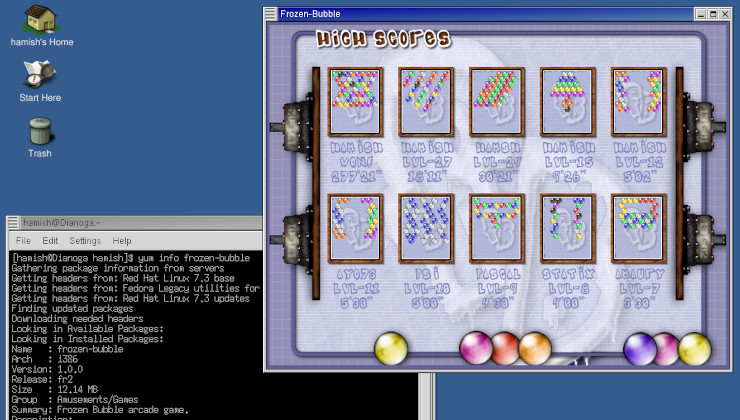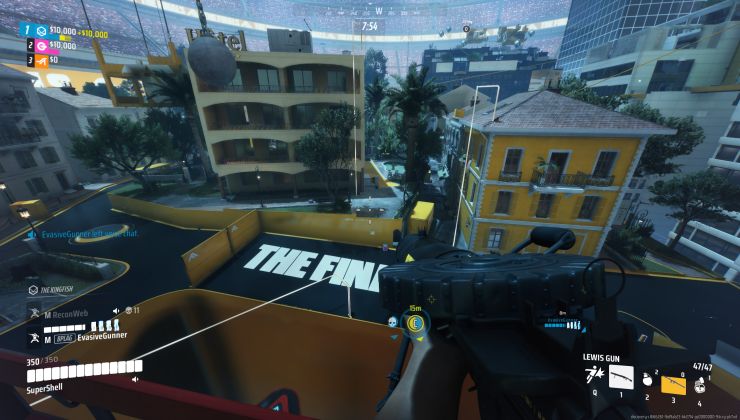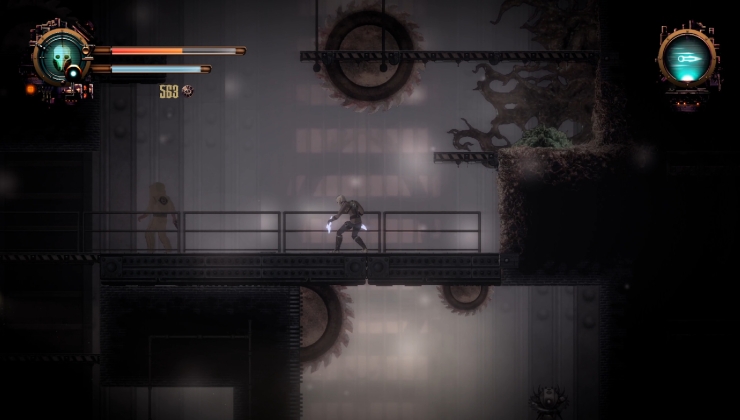Valve gave us the strongest wording yet that a Steam Deck 2 is actually real, although it's still clearly going to be some time away before there's enough of an upgrade.
Recently we had the news that the Steam Deck is finally going to release in Australia, and so now Valve have another market opened up for future hardware launches. So, a few Australian websites managed to get Valve to open up a little to discuss the future and it's sounding good.
Speaking to Reviews.org Australia here's what Steam Deck designer Lawrence Yang said about a Steam Deck 2:
It is important to us, and we’ve tried to be really clear, we are not doing the yearly cadence. We’re not going to do a bump every year. There’s no reason to do that. And, honestly, from our perspective, that’s kind of not really fair to your customers to come out with something so soon that’s only incrementally better. So we really do want to wait for a generational leap in compute without sacrificing battery life before we ship the real second generation of Steam Deck. But it is something that we’re excited about and we’re working on.
Also mentioned in the interview is how they really love seeing all the devices from other companies, even if they're not a fan of the constant device refreshes. There's plenty of other good stuff mentioned in the full interview so be sure to go give it a read.
It's not exactly the freshest news though if you've been following along, since I previously covered Valve's little handbook for the Asia launch, that did make it seem pretty clearly like more was planned. Still, Valve reiterating it so strongly is a great sign.
Until then we've still got plenty to look forward to like the final release of SteamOS 3.6 (it's in Beta) which will bring another big lot of system improvements. And, whatever this ARM64 and Android stuff is for (likely a new VR set).
"If you don't care about me, you won't get my money".
After all, the goal of the Steam Deck was never to appeal to the High End market, it was to supply a stable base of development that will meet the widest range of players possible.
Last edited by Mohandevir on 15 Oct 2024 at 5:22 pm UTC
I'm very curious what hardware they're gonna choose, though. Currently, AMD is the obvious choice but a lot could happen in 1-2 years.
Intel has impressive upscaling technology and Lunar Lake seems pretty great but drivers need to mature. GPU especially.
With enough investment they could also push for ARM. The pieces are there, they just need more work. But it could be doable until the Deck 2.
And with the Mediatek/Nvidia collab, there might be even a chance for an RTX handheld. Although, I'm unsure if Valve would give up control of the GPU drivers.
Really interesting time for speculation.
Last edited by raggytherecond on 15 Oct 2024 at 5:41 pm UTC
I could build a rig myself (which I'd actually enjoy), but I already know that the cost of something small enough would be way too high
The main thing I want to see is making the shell easier to replace to make it easier for everyone to rock their own transparent shell or shell color of their own choosing. The LED version requires a hair dryer and some have reported accidentally destroying audio wiring as I recall. I believe there’s an EU mandate in place in 2027 around easily replaced batteries anyways so I’d peg nextgen in 2027 or earlier
I only gave mine a new backplate but somehow managed to nick the audio wire and lose a speaker, needing to take about everything except the screen out to properly replace the entire connected speaker setup. Tiny mark that I had to hunt to find that somehow killed it and my fault, but I still with it was a little easier when it comes to poking around inside.
There is little point to doing it for such incremental upgrades. There is an advantage (for developers, and for game compatibility) to having a stable platform, there is an advantage (for Steam, and for price) on having larger batches instead of renewing all stock that often. They still haven't sorted out distribution in most of the world, which in my opinion ought to be a priority over upgrades.
Forget about power, I just want a Steam Deck Pocket. One that fits in my pocket.
This depends a lot on what clothes you wear. I have some cargo pants where the pockets could fill a small laptop, but if you wear women's clothing then it is never happening.
A good point someone mentioned in a previous article is also that Valve are still unable to keep up with the verification process and provide consistent, reliable results on many games. Adding a second hardware target to test against is going to basically double the work needed when it comes to performance and drivers (though not UI/UX aspects like font size and keyboard entry, I reckon).They could always, you know, hire more people. But they won't, and they'd probably just end up using crooked contract bullshit anyways.
Last edited by Linux_Rocks on 15 Oct 2024 at 6:48 pm UTC
The Deck has reached a place now where it is a very streamlined experience for both casual users and handheld enthusiasts. It became clear pretty quickly that Valve betting on and embracing Linux as their handheld OS was an incredibly smart move. Almost all the other handhelds on the market came with Windows, and Windows is terrible for low power devices, especially handhelds. Plus, Microsoft has very little interest in tuning Windows for that use case, so it was up to the device manufactures to try working around Microsoft to get the performance where it needed to be.
Valve using Linux, specifically their own Arch Linux spin, ensured they could actually build and shape the development of the OS itself and tune things at a far deeper level than you could with Windows. This was confirmed by Valve and the Arch team forming a partnership a few weeks ago to continue making gaming on Linux better, especially for the Deck.
Also, valve embracing the 3rd party market for parts, replacements, upgrades, and customizations has been great for adoption too. They could have locked down mods and 3rd party parts sellers if they wanted, but keeping it open and relatively easy to repair/mod is awesome.
Valve waiting for the right time to make sure that the Steam Deck 2 is a huge upgrade to their current model is a great strategy, and I'm sure that all the time they've spent carefully tuning and optimizing their Linux spin for the current model will make the next gen's performance that much better.
Also Valve: Releases Steamdeck OLED a year after original...
Valve: It's not fair to consumers that we put out a steamdeck every year....Sure, but that's like a PS-slim edition. It's the same hardware with one aspect slightly improved. They're talking about generational (in chip terms) jumps in performance here.
Also Valve: Releases Steamdeck OLED a year after original...
Forget about power, I just want a Steam Deck Pocket. One that fits in my pocket.
Have you considered wearing cargo pants?
This depends a lot on what clothes you wear. I have some cargo pants where the pockets could fill a small laptop, but if you wear women's clothing then it is never happening.
I recall many years ago (2017-2018ish?) someone on r/transgamers posted a screenshot of a skirt with pockets big enough to fit a Switch. Most of the comments were something along the lines of "That's going to be really really uncomfortable to walk in."
As to the main topic, I'm quite curious as to whether they go with ARM for the Deck 2.
Last edited by RandomizedKirbyTree47 on 15 Oct 2024 at 11:46 pm UTC
As to the main topic, I'm quite curious as to whether they go with ARM for the Deck 2.
ARM is probably still a few years away from being PERFORMANT under Linux. Which means it performs close to its raw hardware power levels because atm, its real crap, but yes the ARM's technically work under Linux.
As for the VR Headset, I think a ARM could work to run custom Valve software that has BAKED IN steam streaming support to PC (like real good quality) so people can play PCVR at great quality via USB or WiFi6+/7.
Not sure which ARM chips can decode and encode 4k AV1 120fps in real time. I know the Intel ARC GPU's (cheap/lowpower) can but who knows about ARM chips.... (also x264/HVEC is probably good enough since BANDWIDTH is unlikely to be a issue thanks to compression and highspeed wifi7/usb4 we have these days)
Last edited by TheRiddick on 15 Oct 2024 at 11:59 pm UTC
This depends a lot on what clothes you wear. I have some cargo pants where the pockets could fill a small laptop, but if you wear women's clothing then it is never happening.Never happening? Mini handhelds have been a thing for quite some time. I bought a Miyoo Mini Plus on sale a year ago and ended up putting far more time into it than I ever did the Deck.
Surely it's a matter of time before someone gets SteamOS running on a device in this form factor.
Ever since then it has been mild increments at best.
Last edited by rustybroomhandle on 16 Oct 2024 at 7:42 am UTC
Probably a custom lower power version of the AMD Strix Halo APU which I think is coming out soon for use.
As to the main topic, I'm quite curious as to whether they go with ARM for the Deck 2.
ARM is probably still a few years away from being PERFORMANT under Linux. Which means it performs close to its raw hardware power levels because atm, its real crap, but yes the ARM's technically work under Linux.
As for the VR Headset, I think a ARM could work to run custom Valve software that has BAKED IN steam streaming support to PC (like real good quality) so people can play PCVR at great quality via USB or WiFi6+/7.
Not sure which ARM chips can decode and encode 4k AV1 120fps in real time. I know the Intel ARC GPU's (cheap/lowpower) can but who knows about ARM chips.... (also x264/HVEC is probably good enough since BANDWIDTH is unlikely to be a issue thanks to compression and highspeed wifi7/usb4 we have these days)
Probably a custom lower power version of the AMD Strix Halo APU which I think is coming out soon for use.
As to the main topic, I'm quite curious as to whether they go with ARM for the Deck 2.
ARM is probably still a few years away from being PERFORMANT under Linux. Which means it performs close to its raw hardware power levels because atm, its real crap, but yes the ARM's technically work under Linux.
As for the VR Headset, I think a ARM could work to run custom Valve software that has BAKED IN steam streaming support to PC (like real good quality) so people can play PCVR at great quality via USB or WiFi6+/7.
Not sure which ARM chips can decode and encode 4k AV1 120fps in real time. I know the Intel ARC GPU's (cheap/lowpower) can but who knows about ARM chips.... (also x264/HVEC is probably good enough since BANDWIDTH is unlikely to be a issue thanks to compression and highspeed wifi7/usb4 we have these days)
ARM is already performant under Linux, because lots of servers run on Linux/ARM and most Android phones do run ARM.
The real problem will be the emulation needed for x86.
ARM/x86 emulation is complete to in the level that they're now mostly limited by the speed that they can discover new secret instructions in x86.












 How to set, change and reset your SteamOS / Steam Deck desktop sudo password
How to set, change and reset your SteamOS / Steam Deck desktop sudo password How to set up Decky Loader on Steam Deck / SteamOS for easy plugins
How to set up Decky Loader on Steam Deck / SteamOS for easy plugins
See more from me